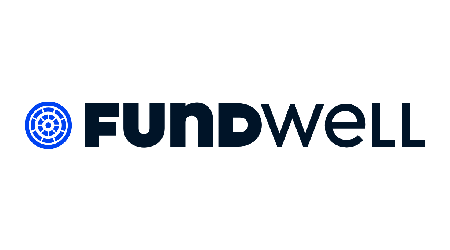This loan size is one of the largest you can get for your small business, which may mean more stringent eligibility requirements to qualify for the loan. You probably won’t be able to get a $5 million loan to finance a start-up, but if you have an established business, you can choose between several types of loans to find what’s best for your small business.
Where can I get a $5 million business loan?
Banks are most likely to offer business loans as large as $5 million — especially large national banks, which have the funds to offer loans of this size to more businesses.
Some online lenders and credit unions can offer $5 million loans, often through the government-back Small Business Administration (SBA) 7(a) program. These are inexpensive but involve a lengthy application and have one of the lowest approval rates.
Merchant cash advance and factoring companies sometimes offer advances up to $5 million, based on your business’s revenue. These come with minimal requirements and have a high approval rate, but are often the most expensive.
Compare $5 million business loans
Select your business revenue, time in business and your credit score range before reviewing the lenders on this table. Click More info to read our review or Check eligibility to get started on the application.
Compare other products
We currently don't have that product, but here are others to consider:
How we picked theseWhat is the Finder Score?
The Finder Score crunches 12+ types of business loans across 35+ lenders. It takes into account the product's interest rate, fees and features, as well as the type of loan eg investor, variable, fixed rate - this gives you a simple score out of 10.
To provide a Score, we compare like-for-like loans. So if you're comparing the best business loans for startups loans, you can see how each business loan stacks up against other business loans with the same borrower type, rate type and repayment type.
How to get a $5 million business loan
The exact process varies by lender, but these steps can help you get started:
- Compare lenders. Your first step is to shop and compare multiple lenders. This ensures you’re finding your best options for minimal fees, low APRs and perks that fit your needs. Not all lenders offer $5 million loans, and each lender’s requirements could mean the difference between your loan approval or denial.
- Prepare financial documents. Gather bank statements, tax documents and other financial information that demonstrates your business’s ability to repay your loan. You’ll also need a business plan that includes financial projections.
- Reach out to a financial advisor. With a high-dollar loan of $5 million, it’s a good idea to include a financial advisor in your plans to ensure your business can afford a loan of this amount.
- Get pre-approved. This allows you to see your loan’s potential terms before your personal or business credit is officially checked, which means you can compare options without affecting your credit. Not all lenders offer preapproval, but if it’s available, take advantage of it.
- Review and sign your loan contract. After you’re approved, review your loan contract with your partners and financial advisor to ensure the terms are beneficial for your business.
Ask an expert

What will lenders look at when considering my application?
A traditional bank and most other lenders will want to review your credit history, standard business financial ratios, several years of your income statements, balance sheets and cashflow statements…
How much a $5 million business loan costs
Since $5 million loans often have strict credit requirements, these tend to come with competitive rates of around 6% to 11% APR. Especially if you’re applying for an SBA 7(a) loan, which caps interest rates at the prime rate plus 5% for loans of this size. SBA loans don’t allow many of the typical bank fees, but a bank loan may come with an origination fee, which could be as high as $250,000 — 5% of the loan amount.
But $5 million loans also typically come with the longest terms available — somewhere around 10 to 25 years, depending on the lender and loan type. A longer term can decrease your monthly cost, but makes your loan more expensive in the long run.
But even a low interest rate paired with a long term can spell high monthly repayments. A $5 million loan with a 25-year term at an interest rate of 10% would cost $45,435.04 a month. And the total interest paid would be around $8,630,511. It’s best to weigh the rates you’ll receive on this loan amount against the average business loan interest rates by loan type.
Business loan calculator
See how much you'll pay|
Your loan
|
|---|
| Loan amount |
|
$
|
| Loan terms (in years) |
|
|
| Interest rate |
|
%
|
Fill out the form and click on “Calculate” to see your estimated monthly payment.
or
Compare business loans nowBased on your loan terms
| Principal | $ |
|---|---|
| Interest | $ |
| Total Cost | $ |
5 types of $5 million business loans
The type of loan you need depends on how your business plans on using the funds and whether you qualify. For loans of this size, you generally need to provide collateral to back the loan, such as real estate or other business assets. Once you’ve determined the kind of loan you need, check out our picks for Best small business loans.
Business term loan
Term loans come in one lump sum that you repay in installments over several years — usually 10 to 25 years for a loan of this size. These are often best for one-time expenses with costs that are easy to predict. You typically need to have good to excellent credit to get this loan, in addition to a high enough revenue to afford repayments.
Consider using a term loan if …
- You have a one-time expense.
- You and your business are strong financially.
- You have time to spend on the application.
Consider other options if …
- Your costs are unpredictable.
- You or another business partner have poor credit.
- Your business needs money fast.
Business line of credit
Not sure you’ll need exactly $5 million? Taking out a business line of credit might be a better option. This allows you to draw up to $5 million from a credit line. You either pay back each draw in fixed installments or with a minimum monthly payment. Like with a term loan, your business finances and personal credit need to be strong for such a high credit limit.
Consider using a line of credit if …
- You’re funding an ongoing project.
- You want to have cash available to cover unforeseen costs.
- You and your business have strong financials.
Consider other options if …
- You only need a one-time loan.
- You don’t need continual access to cash.
- You or your business partners have poor credit.
SBA 7(a) loan
The SBA offers loans up to $5 million through its popular 7(a) program. With these loans, the government guarantees up to $3.75 million, making it easier to qualify for more competitive rates.
These loans are available to businesses that have struggled in the past to secure funding — though they’re still hard to qualify for. They also require a lot of paperwork, and the entire process can take months to complete.
Consider using an SBA 7(a) loan if …
- You have months to complete the application process.
- You’ve unsuccessfully applied for $5 million in the past.
- You and your business partners can meet the SBA’s eligibility requirements.
Consider other options if …
- You lack the resources for a drawn-out application.
- You haven’t already applied for funding elsewhere.
- You need money immediately.
Invoice factoring
This option allows you to sell your unpaid invoices from other businesses and government agencies to avoid breaks in cash flow. Typically, you can get around 80% to 95% of the value of your business’s unpaid invoices. Rather than interest, companies charge a flat fee called a factor rate. You don’t need to have excellent credit or even strong revenue to qualify, invoice factoring is typically more expensive than other options.
Consider using invoice factoring if …
- You have $5.26 million to $6.25 million in unpaid invoices.
- You need funding fast.
- You or your business partners have poor credit.
Consider other options if …
- You have strong credit.
- You don’t rely on invoices from businesses or government agencies.
- You can qualify for a less-expensive option.
Merchant cash advances
A merchant cash advance is an advance on your business’s future sales, which you repay plus a flat fee with a percentage of your daily sales. How much you can borrow typically depends on your past sales history. These have a high approval rate and can get you funding as soon as the next business day. But the fee is often high, sometimes equivalent to a 300% APR.
Consider using merchant cash advances if …
- Your business makes enough monthly sales to qualify.
- You need funding fast.
- You have bad credit.
Consider other options if …
- You can qualify for any other type of financing.
- You rely on government contracts and other businesses for revenue.
- Your business can’t afford to lose a portion of daily sales.
Bottom line
It’s a challenge to qualify for $5 million in business funding — many lenders don’t even offer loans this high. You and your business must be financially sound and have the collateral to back the loan to qualify. You can learn more about how business financing works by checking out our guide to business loans.
Other business loan amounts:
Ask a question
More guides on Finder
-
8 Best Commercial Truck Loans (2026)
Best financing options for trucking companies to cover licensing, new trucks, insurance, vehicle maintenance and more.
-
Fundera Review: Fast Funding Up to $5M for Small Businesses (2026)
Get connected with short-term funding, SBA loans, lines of credit and more.
-
$50K No-Doc Business Loans: Fast Funding, Apply Today (2026)
Compare $50,000 no-doc business loans for an expedited lending process.
-
How to Get a $5,000 Business Loan (2026)
Compare $5,000 business loans and what you need to qualify.
-
How to Get a $400,000 Business Loan in 2026
Compare different lenders to secure a $400,000 business loan with favorable terms.
-
Compare $40,000 business loans (2026)
Find a $40,000 business loan for your business and calculate the cost before you apply.
-
How to Get a $10 Million Business Loan in 2026
Buy real estate, another business or expand your enterprise.
-
How to Get a $3 Million Business Loan in 2026
You’ll have an easier time qualifying if you have strong credit and high revenue.
-
Compare $10,000 Business Loans in 2026
Stay away from big banks for a loan of this size.




